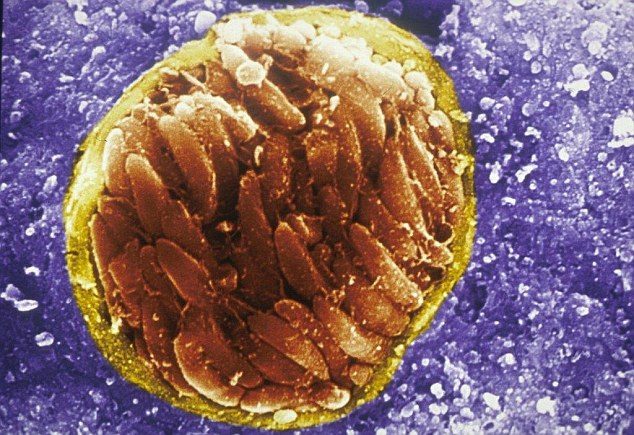This creature may be responsible for 30% of the world population being angry all day
A type of parasite in the brain can make you unable to control your anger, as always as if you want to explode.
Who doesn't get angry and lacks control? However, if you often lose control, let " the mouth go away " with violent acts taking place at a high frequency, the problem is no longer simple.
According to scientists from the University of Chicago (USA), people who are often out of control of behavior may be suffering from a continuous disorder syndrome (Intermittent Explosive Disorder - IED). And one of the causes of this syndrome may come from a type of parasite in the human brain, called " arched worm " - toxoplasma gondii .

This creature may be responsible for 30% of the world population being angry all day.
This parasite is relatively common. The host of T.gondii is a cat, but it can spread to other animals - of course humans. According to statistics, about 30% of the world's population has this organism in their brain.
Usually, T.gondii does not cause any harm to adults. However, this is the first time scientists have found an association between the IED disorder and the parasite.
More specifically, tests on 358 people with IED show up to 22% of curvature infections. Moreover, these people have a higher level of disorder than non-infected people.

This creature may be responsible for 30% of the world population being angry all day.
According to Dr. Emil Coccaro - research director - it is still not clear whether the cause is the cause of the IED or vice versa, or that both have reciprocal relations. " Our research shows that toxoplasmosis can cause biochemical reactions in the brain, while enhancing violent behaviors in humans, " said Dr.
T.gondii is transmitted from cats to humans by eating uncooked meat , drinking contaminated water , or by contacting cat feces . Although there is no evidence yet, T.gondii is thought to be related to schizophrenia or bipolar disorder in some cases.
The study was published in Clinical Psychiatry.
- Looking back at the past, present and future world population
- There is going to be a cure for anger
- Half the world's population lives on 1% of the Earth
- Video: World population development history
- Climate change sea makes people easily angry
- The world will have 9.7 billion people by 2050
- The world population officially exceeds the threshold of 7.5 billion people
- 10 'interesting' maps prove the world population is unevenly distributed
- The bigger the population, the faster the end of the world
- Angry Birds make players smarter?
- Why do we get angry when it's hot?
- Will the world population not exceed 8 billion people?
 Why do potatoes have eyes?
Why do potatoes have eyes? 'Tragedy' the world's largest carnivorous life: Death becomes ... public toilet
'Tragedy' the world's largest carnivorous life: Death becomes ... public toilet Tomatoes were once considered 'poisonous' for 200 years
Tomatoes were once considered 'poisonous' for 200 years Detecting microscopic parasites on human face
Detecting microscopic parasites on human face